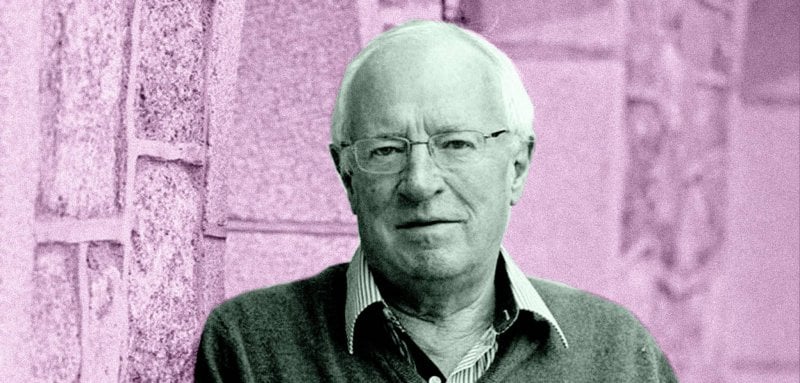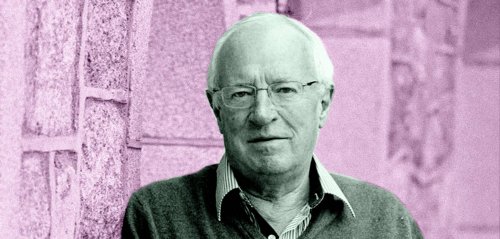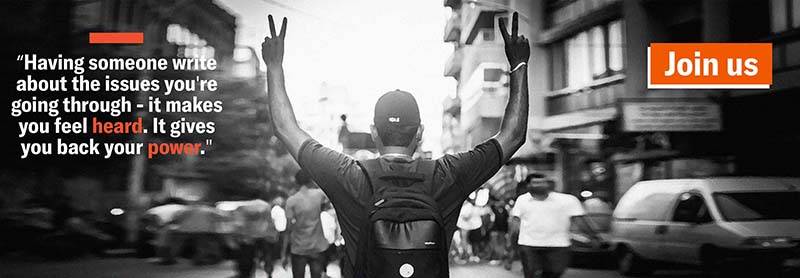It was not easy for the Romans to pay attention to Mark Antony, despite the heartfelt address he made that refuses to leave the memory of anyone who reads its adaptation in William Shakespeare’s play Julius Caesar. An ally of the renowned leader, he came to address a divided nation following Caesar’s assassination at the hands of senators in 44 BC. Of those who supported Brutus, Cassius and their kin, who preferred to preserve the Republic’s democracy as opposed to blind obedience to this self-proclaimed “dictator for life”, he was not ready to hear any veneration and glorification in his memory.
But Anthony soon made his purpose clear:
I have come to bury Caesar, not to praise him.
The evil that men do lives after them;
The good is oft interred with their bones;
So let it be with Caesar.
These words kept coming to my mind from the moment I read the news of the death of British journalist Robert Fisk on a Sunday evening. Fisk had passed away at the age of 74 from a heart attack on the eve of November 2nd, 2020. In the eyes of some of the people who knew him or those who followed his work around the world, Robert Fisk was a bold, brave, intelligent, resourceful, perceptive, and authority-defying journalist, as well as a brilliant writer. In the eyes of many others, Robert Fisk never had the boldness, courage or credibility that the other side so often spoke of, or had lost it with the onset of the 2010 Arab Spring - specifically the Syrian revolution that erupted on March 15, 2011 and was, in the words of many, “betrayed” by Fisk.
There is another group of people who opted to remain silent even though they had much to say. Perhaps the reason they refrained from doing so was that they saw validity in the points of view of each of the previous two teams, which made talking about Fisk at a time like this as dangerous as walking in a minefield or touching an exposed electric circuit breaker after a rainy night.
From my personal experience with Robert Fisk, I who looked up to him during my university years, am confident he did not mind fabricating details for his articles.
For me, Fisk was the man I looked up to during my years as a university student studying within the field of media, and whose name would be brought up by those who wished me professional success in the future: “Hope to see you become the next Robert Fisk!”... I would often hear these words from members of my family who loved Fisk’s sharp criticism of the Israeli occupation and its crimes in Palestine. I also heard them in school from my professor, who had fled with the Armenian community from central Turkey to northern Syria after the Armenian genocide that took place more than a hundred years ago, praising Robert Fisk and his role in writing about the genocide.
During my college years, I would carefully read every famous article written by Fisk, copying some of them down on paper in order to improve my English writing. I’d try to be careful while reading or copying sensitive articles like the one where he spoke of the Hama massacre that was committed by the earlier Assad regime (father and uncle Assad) in the 1980s and detailed the bombing of mosques and residential facilities, in addition to ones where he spoke of the dictatorial nature of the Assad regime. I remember an article he wrote in 2006 about the Syrian Ministry of Information, an article that I secretly shared with some of my classmates at the time so that they would see the institution’s chaos and corruption through the eyes of a distinguished foreign reporter. When I wrote about “The Chaos of the Syrian Ministry of Information in Times of War” for Raseef22 and again while preparing this article, I searched for that article many times but wasn’t able to find it.
What Fisk wrote about Lebanon, its politicians, and the civil war there became the main cause of my great interest in the politics of the neighboring country that I have always loved, enjoyed visiting, and later sought refuge in.
How can Fisk not be my choice? Fisk who, when I’d type “Middle East reporter” into Google’s search engine without mentioning anything else, his photo and biography would be among the top results. I have lived all those years in the illusion of Fisk, the journalism legend and role model, until we met and everything changed…
I was the last person among my team to enter the restaurant of the Safir Hotel in the Syrian city of Homs on a cold March evening in 2016. I was working at the time as an independent producer with the BBC News team there. As I walked toward my colleagues’ table, a man in his seventies with foreign features caught my attention. He seemed like one of the men that Dostoevsky’s main characters would meet inside an old, traditional tavern in a St. Petersburg neighborhood right before the novel reached its climax. What was left of his white hair had been tousled by the wind that we weren’t safe from even inside the Homs Safir Hotel. The redness of his face was made even more evident behind the smoky wisps of his Cuban cigar. He had no one accompanying him, or even a mobile phone or book with him. He was staring into space and didn’t seem to see anything other than what was going on in his own world.
After sitting at the BBC team table, one of the female reporters asked me, “Guess who’s here at the hotel!”
I asked, “Who?”
She replied, “It’s Robert Fisk.”
I immediately whirled around to take another look at the person smoking his cigar all by his lonesome, and was now writing something in his notebook. My sudden, uncontrolled movement sparked whispers from those at the table, urging me not to let him feel like he was the subject of our conversation.
After our visit to Homs ended, I went to The Independent office where Robert Fisk writes, and was shocked. Fisk spoke of places and facts we didn’t visit or witness. His interview with officials was full of eloquent phrases that were fabrications
I immediately asked them why we were ignoring him, suggesting that we sit with him like we usually do with other journalists. They seemed embarrassed, then proceeded to speak of Robert Fisk’s recent articles on Syria, none of which I had read. They mentioned how his coverage of some events in the country adopted the regime’s point of view, as well as his extremely good relations with the Syrian authorities. This both surprised and saddened me, but I wanted to make sure that this really was accurate myself.
The next day, we stood for hours watching the eviction of the last neighborhood still under the control of the opposition: the al-Waer neighborhood in Homs. I remember many moments of that trip in vivid detail. It had been my last in Syria, as I had to leave the country for good about two weeks later.
One of the scenes that I will never forget was the pro-regime Mufti of Homs (the Syrian regime often uses clerics in what it calls reconciliation with the opposition, causing them to always be present in such events) hugging a sheikh with the opposition.They spoke for a few moments before the soldiers of the regime urged the latter onto the bus taking them to northern Syria under to the agreement. The two men haven’t met in years. Standing next to me, Robert Fisk then turned to ask me, “What did they say?” That was one of the first shocks I had regarding him. Doesn’t Robert Fisk speak Arabic?
Fisk spent nearly half his life in the Middle East, specifically in Beirut. However despite this, circumstances have repeatedly confirmed to me that his Arabic language was almost non-existent. In one of his articles, he spoke of the first half of the Arab Socialist Ba’ath Party slogan, “Ummah Arabiya Wahida”, or “One Arab Nation”. Thinking that it says “Um al Arabiya Wahida”, he translated it to mean “Mother of One Arab Nation”. Writer and Professor Elias Muhanna posted this passage and highlighted the error, prompting a wave of ridicule and criticism on Twitter. The tweet is still pinned to the top of Washington Post reporter Sarah Dadouch’s twitter page, with the comment: “Note to foreign journalists: Learn the language.”
Not long after the two sheikhs incident, I was surprised by the suddenly rising voice of the governor of Homs, as he yelled at the translator accompanying Fisk. Talal al-Barazi, who later became Minister of Internal Trade and Consumer Protection, did not speak English well. But the translator Robert chose - I later learned that he had always been using her for years - left no room for doubt that she wasn’t able to accurately convey any of what al-Barazi was saying. When she translated him saying “the next day” into “za second day”, he could no longer contain himself and angrily snapped at her, “What ‘za second day’! It’s ‘the next day’!” He then looked at me beseechingly (I had translated his interview with the BBC the day before in Qalaat al-Hosn), but I did not want to interfere for fear of getting in trouble with that translator since she had close ties with the Syrian intelligence.
In 2018, Robert Fisk almost immediately adopted the Syrian regime’s narrative that denied the use of chemical weapons in the Douma massacre on April 7 of that year.
Several people exchanged surprised looks and bewildered smiles, but the only one who didn’t seem to notice what was going on, or even worse, did not mind what was happening, was Fisk himself. I went to Fisk that evening and told him what I thought he had not been aware of, “Your colleague...she...does not speak English well.” Fisk just looked at me seriously with an expression free of surprise, but I continued, “I’m afraid that nothing from your interview with the governor has even reached you.” Fisk shook his head and did not respond.
After our visit to Homs ended, I went to The Independent head office where Fisk writes, and was shocked. Fisk spoke of places we did not visit, and facts we did not witness, and his interview with officials, including those in the governorate, was full of long, eloquent and expressive phrases that I have no idea where they had come from. Then I started reading what he wrote about other events; regarding the massacres committed in Daraya, one of the symbols of the Syrian revolution, where many forms of media, administrative, and peaceful activism were born, especially local coordination committees. Fisk saw things from the perspective of the forces of the Syrian regime and did not question the account of those that the regime had provided for interviews.
“Robert Fisk chose to embed himself with the murderers of the 2012 Daraya Massacre,” writer and researcher Joey Ayoub tweeted after Fisk’s death. “[He] chose to invent a story to sell to his western papers, a story denied by the Local Coordination Committee and witnesses. He never apologized, he doubled down.”
This wave of harsh criticism on Twitter was not in the wrong. The damage that Fisk had inflicted on his journalistic reputation over the last decade had been at the expense of the lives of hundreds of thousands of Syrians who have been killed in the most brutal ways. Later, in 2018, Robert Fisk almost immediately adopted the Syrian regime’s narrative that denied the use of chemical weapons in the Douma massacre on April 7 of that year. I was shocked when I learned that, to believe that story, Fisk was satisfied with the account of a doctor that had been introduced to him by officials in the Syrian government and army, along with a visit organized by the Syrian authorities for foreign journalists to Douma after it was evacuated of people. I heard an interview on Irish radio where Fisk said that the cause of death and suffocation of such a large number of people was the dust from collapsed buildings due to the bombings.
“Then tell me, have you become one of those ‘Monot’ (luxurious neighborhood in Beirut) journalists, spending your time in a café writing about places you don’t visit?” Fisk jokingly asked me when I met him in an Italian restaurant in Beirut’s Hamra, not long after his statements regarding the chemical attack. I had agreed to sit with him to talk about Syria’s Law No. 10 of 2018 issued by Bashar al-Assad allowing the Syrian regime to seize the property of the displaced people that cannot return to their neighborhoods or have lost the documents that prove their ownership.
Fisk’s use of the excuse to not visit the places that some journalists write about, is a criticism used by many bloggers and media professionals that sympathize with the Syrian regime. They ignore or forget that this sympathy is what grants them the visa and the right to enter and return safely to Syria. “I think we all would rather go to Syria to see what is going on there with our own eyes,” I said in response to his sarcastic question. “But we also know the nature of the restrictions imposed on media work there, and you can imagine the danger surrounding a person like me, a person that holds Syrian citizenship and works with international media that the regime sees as a conspirator against the sovereignty of Syria.”
Fisk then asked me, “Have you done your mandatory military service in Syria?” I replied, “No”. His next question, and his justification for it, was truly shocking.
“Why don’t you go back and do it in Syria if it turns out that you have no security issues? And I don’t think there are any problems for you in the first place, since you are a journalist who is only doing your duty.” I stared at him in shock and sipped no less than a quarter of my wine glass as Fisk continued, “I know many excellent journalists who were in the army before, and who have made use of military experience in their work.”
I did not know how to respond. He didn’t seem to be joking. Where do I even start? Do you not know, Robert - after covering the Middle East for more than 35 years - that the army in Syria is different from how a citizen views his army in Britain, America or a country of Western Europe? Does he not know what this “military experience” entails in an army like that of the Syrian regime when it comes to killing, destroying, and stealing? Does he not know that this will tarnish my reputation in front of people - and not without undue cause - until the end of my days? Does he not know that the goal of the army is to protect the regime and its leader and take up arms in the face of the people? Unbelievable!
I smiled, and we went back to our conversation about Law 10. I strongly criticized the law and explained the harm it could do to people. He focused with me intently and listened to what I said, taking some notes. A few days after our meeting, he sent me his article which contained hard criticism of the law and the Syrian government.
I keep thinking of Antony’s speech, and I remember him saying towards the end: “You all loved him before, and it was not without reason. So what is it that prevents you from mourning for him”; But I do not fully agree with this statement in the case of Robert, even before the Syrian revolution.
I remember separate conversations I had with two veteran journalists that were on a plane that transported international media correspondents to Iraq during the first Gulf War in order to allow them to work in the field for a short period of time. However, after the plane landed in Baghdad, the authorities changed their minds and did not allow anyone to set foot in the capital, so they simply went back to where they came from. “My editor understood at first, but then hours later called me in anger, accusing me of negligence and underperformance,” said one of the journalists who were on the plane. “I later found out that he had seen an article from Baghdad by a journalist who had accompanied us: Robert Fisk.”
The two men agreed that Fisk, like everyone else, had not even for a moment gotten off the plane.
I learned that even his book “Pity the Nation”, its title inspired by Gibran Khalil Gibran’s ‘The Garden of the Prophet’ and talks about the Lebanese civil war, is not as legendary as my first impression of it was. For me, as for many journalists, researchers and analysts, it had been the first book that we read about Lebanon. I learned of Robert’s close relationship with the taxi driver whom he met through his good friend Walid Jumblatt, one of the warlords of the Lebanese civil war and head of the Progressive Socialist Party that Robert always praised in his articles.
Since the rise of the wave of populism and right-wing leaders around the world began in 2015, I have taken it upon myself to think more than once before challenging the integrity of another journalist. The accusation of “fake news” had been politicized by leaders like Donald Trump - who openly admitted his policy of challenging the media’s credibility in order to relieve himself of having to justify his actions that they’ve exposed. After finishing my studies, I discovered that most of those that I considered media role models - influenced by the reports they’d prepare from different countries of the world - are not really even scratching the surface of what they write about, and often cause harm to the struggling people that they’re covering because they do not speak the language or understand the politics or the culture of their country. I knew that their privileges, namely their citizenship, passport, and the prestigious universities they can attend, among other things, were the main difference between them and many journalists we had never heard of.
Robert lived in his own world, loved himself and his work like no one else did. In our last meeting, we happened upon each other by chance in a café in Gemmayzeh before I left Lebanon. I greeted him jokingly, “Look who is drinking coffee in a café in the east of the capital!” Less than a minute later, he was counting the times people stood to applaud him during a tour of a documentary about his life.
I am now confident from my personal experience with him that he did not mind fabricating details in his articles. I knew that he did not cheer on the killing of people, but he callously abused their cause and their tragedy when he believed the executioner’s story. Robert Fisk believed that he stood with the Middle East in the face of imperialism and Zionism, while he supported - directly or indirectly - a dictatorial regime that committed unforgivable war crimes. Robert Fisk did not see the problem with being the only Western journalist with a visa allowing him to enter the country multiple times at any given time.
Fisk, who was revered by many despite his mistakes, died in 2011. As for the one who died last year, he didn't leave any room to be defended without conjuring images of parents crying for their children, victims of crimes Fisk refused to condemn or even acknowledge.
Of what’s been written about him since his passing, I liked the description that my friend Ronnie Mohamad Chatah, who hosts the ‘Beirut Banyan’ podcast, wrote on social media: “I knew Robert Fisk. He helped me with my AUB research. Getting drunk together was both joyous & miserable. Our walks on the corniche were pleasant & painful. He was torn inside. Misguided affection for perceived underdogs, aside, he loved Beirut on his own terms. And he could write. RIP.”
Speaking well of the dead is a universal testament known among people of all cultures, but Robert Fisk, who was revered by many despite his mistakes in the decades prior to the last ten years, died in 2011. As for the one who died yesterday, he did not leave any room for others to defend him without conjuring the images of mothers and fathers crying for their children, victims of crimes that Fisk refused to condemn or even acknowledge.
I wish I could conclude my words the way Antony did, and say, “My heart is in the coffin there with Caesar; And I must pause till it come back to me..” All I can say, Robert, is that your first death saddened me more than the second.
*The views and opinions expressed in this article are those of the author’s and do not necessarily reflect the official policy or position of Raseef22
Raseef22 is a not for profit entity. Our focus is on quality journalism. Every contribution to the NasRaseef membership goes directly towards journalism production. We stand independent, not accepting corporate sponsorships, sponsored content or political funding.
Support our mission to keep Raseef22 available to all readers by clicking here!






Join the Conversation
جيسيكا ملو فالنتاين -
1 day agoجميل جدا أن تقدر كل المشاعر لأنها جميعا مهمة. شكرا على هذا المقال المشبع بالعواطف. احببت جدا خط...
Tayma Shrit -
3 days agoمدينتي التي فارقتها منذ أكثر من 10 سنين، مختلفة وغريبة جداً عمّا كانت سابقاً، للأسف.
Anonymous user -
3 days agoفوزي رياض الشاذلي: هل هناك موقع إلكتروني أو صحيفة أو مجلة في الدول العربية لا تتطرق فيها يوميا...
Anonymous user -
3 days agoاهم نتيجة للرد الايراني الذي أعلنه قبل ساعات قبل حدوثه ، والذي كان لاينوي فيه احداث أضرار...
Samah Al Jundi-Pfaff -
5 days agoأرسل لك بعضا من الألفة من مدينة ألمانية صغيرة... تابعي الكتابة ونشر الألفة
Samah Al Jundi-Pfaff -
5 days agoاللاذقية وأسرارها وقصصها .... هل من مزيد؟ بالانتظار